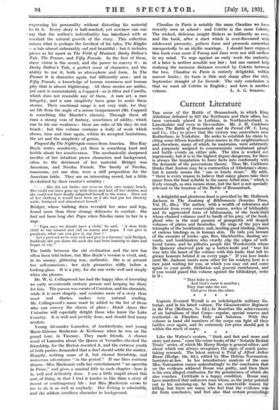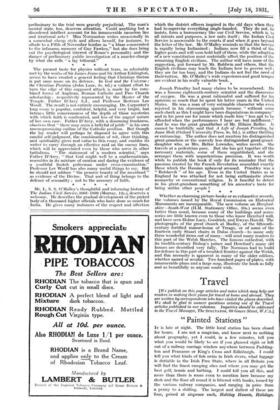Like the Walrus's oysters, " thick and fast and more
and more and more," come the crime books of the " Notable British Trials" series, of which Mr. Harry Hodge is general editor, and about which one always recognizes the signs of much pains- taking research. The latest arrival is Trial of Alfred Arthur Rouse (Hodge, 10s. (3d.), edited by Miss Helena Normanton, barrister-at-law. In her introductory analysis of the case Miss Normanton comes unhesitatingly to the conclusion that on the evidence adduced Rouse was guilty,, and then there is his own alleged confession, for the genuineness of which she also vouches: Certitude is a happy condition. Rouse may have murdered that unknown man whom, as the judge pointed out in his summing-up, he had no conceivable reason for Icilling, but there are many who feel that the evidence was tar froth conclusive, and feel also that certain proceedings preliminary to the trial were gravely prejudicial. The man's mental state, too, deserves attention. Could anything but a disordered intellect account for his innumerable causeless lies and irrational acts ? Miss Noririanton writes occasionally in a somewhat cheap style and allows herself, for instance, to allude to a Fifth of November bonfire as " a blaze consecrated to the infamous memory of Guy Fawkes," but she does bring out the psychological interest of Rouse's personality and the danger of preliminary public investigation of a murder-charge by what she calls " a lay tribunal.



































 Previous page
Previous page